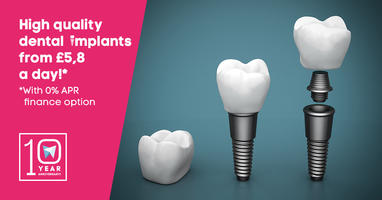It is extremely rare that dental implants damage your nerves, and if they do, they can cause a number of problems. The main nerve that is in the head area, and causes the movement of the tongue, the face muscles and is responsible for sensation in your face is called the trigeminal nerve or TN, and it is extremely rare for that nerve to be affected by dental implant surgery. However, the alveolar nerve is damaged all the time by dental implantation procedures, so this article will focus only on damage that can be caused to the alveolar nerve, or the inferior dental nerve, as it is sometimes referred to, along with the lingual nerve which controls the tongue, and the buccal nerves which cause the lips to move. These later two are branches of the trigeminal nerve, also known as the 5th cerebral nerve. Since many different effects can be felt from nerve damage, I will give a short catalogue, and a list of things to do in case you feel you may be affected by damage to your alveolar nerve as a result of dental implants.
Hypoaesthesia
This long and complicated latin term simply means loss of feeling or reduced feeling, and it is exactly as it sounds. When the nerve is nicked, it may have trouble sending impulses to the brain, and thus feeling sensations may become sporadic and patchy, as not all of them may be communicated to the brain. This is a common effect of injury, and is one of the best situations. This condition can affect speech, the way you taste things, and the way your mouth and gums feel.

Paraesthesia, dysaesthesia
These two are related to each other and constitute a more severe problem that comes on with nerve damage. The first is when you feel a tickling or burning sensation, or some kind of sensation that is not there. In these cases the nerve is picking up something that is not present, and that is sending impulses to the brain. In medical terms this is called a permanent abnormal sensation. Dysaesthesia is when that sensation is unpleasant, like the aforementioned burning, or it may be a sharp constant pain. The causes are the same. These can occur in any part of the alveolus, gums, lip or tongue, and are dealt with immediately, usually to a loss of feeling, as the connection between the nerve and the brain needs to be severed, which is done by destroying the nerve.
What to do
The big problem is that nerve damage is utterly irreversible, once its gone, its gone. We simply cannot make living and functional nerve cells as of yet, and the link between the synapses and the nerves is still not quite understood although functionally we have a pretty good understanding of the nervous system. There are things to be done that can regenerate some of the nerves but it is really just damage control. These kinds of injuries are almost always the fault of the doctor, and you are entitled to a lawsuit. With proper x-rays and/or CT scanning when it is necessary, and careful work, nerve damage is completely avoidable in dental implantology, but these kinds of injuries are still the number one cause of litigation and lawsuits in this field. Make sure you work with a good implantologists who you feel safe with.
image: 1.

